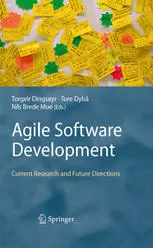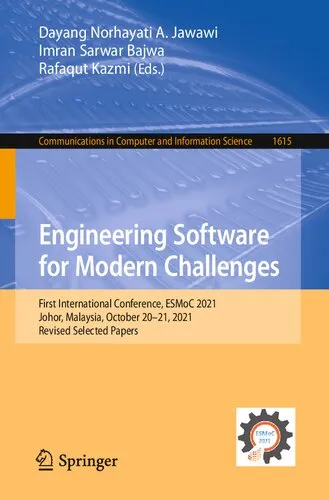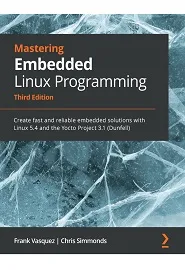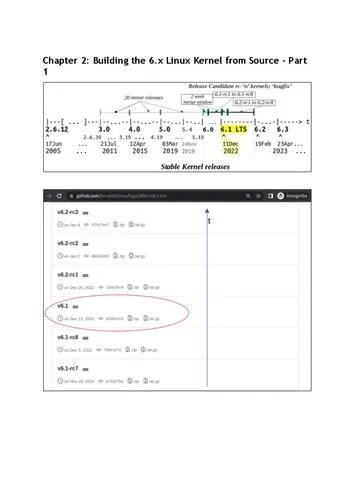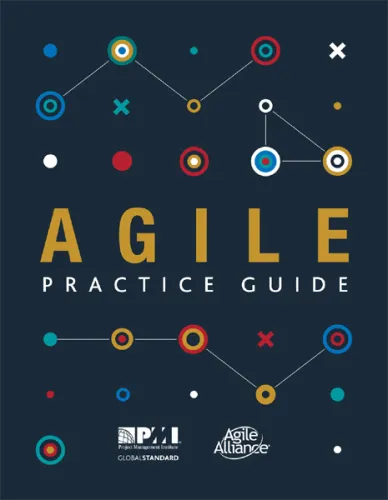Agile Software Development: Current Research and Future Directions
4.5
بر اساس نظر کاربران

شما میتونید سوالاتتون در باره کتاب رو از هوش مصنوعیش بعد از ورود بپرسید
هر دانلود یا پرسش از هوش مصنوعی 2 امتیاز لازم دارد، برای بدست آوردن امتیاز رایگان، به صفحه ی راهنمای امتیازات سر بزنید و یک سری کار ارزشمند انجام بدینکتاب های مرتبط:
خلاصه تحلیلی کتاب
کتاب Agile Software Development: Current Research and Future Directions حاصل تلاش مشترک پژوهشگران برجسته حوزه Agile و Software Engineering است که با رویکردی مبتنی بر تحقیق و شواهد، جایگاه توسعه نرمافزار چابک را در صنعت و دانشگاه بررسی میکند. این اثر به جای تمرکز صرف بر معرفی روشها، به نقد و تحلیل علمی این پارادایم میپردازد.
ساختار کتاب شامل مرور مطالعات موردی، بررسی تجربیات سازمانهای مختلف، ارزیابی ابزارها و تکنیکهای رایج، و ارائه مسیرهای آتی پژوهش در عرصه Agile است. نویسندگان با اتکا به دادههای معتبر، نقاط قوت و ضعف متدولوژیهای چابک را تحلیل کرده و تأثیر آنها بر کیفیت، بهرهوری و تعامل تیمها را آشکار میسازند.
این کتاب با پرهیز از رویکرد تبلیغاتی و تمرکز بر شواهد، برای پژوهشگران، دانشجویان و متخصصانی که به دنبال درک عمیقتر از محیط کاری چابک هستند، یک منبع جامع و معتبر محسوب میشود.
نکات کلیدی و کاربردی
یکی از نکات برجسته کتاب این است که Agile Development را نه صرفاً به عنوان مجموعهای از تکنیکها، بلکه به عنوان یک ذهنیت و فرهنگ کاری معرفی میکند. این نگرش به خواننده کمک میکند که فراتر از چارچوبها، به اصول بنیادین و پیشزمینههای موفقیت تیمهای چابک بیندیشد.
کتاب بر اهمیت اندازهگیری و ارزیابی مستمر فرایندها تأکید دارد؛ چرا که بدون دادههای دقیق، تشخیص پیشرفت واقعی دشوار خواهد بود. همچنین به ارتباط میان تحقیق دانشگاهی و پیادهسازی صنعتی در Agile اشاره میشود که پلی ارزشمند میان نظریه و عمل ایجاد میکند.
مطالعههای ارائه شده نشان میدهد که هماهنگی تیمها، بهینهسازی مدیریت پروژه و تمرکز بر بهبود مستمر، عوامل کلیدی موفقیت در استفاده عملی از Agile Methodologies هستند.
نقلقولهای ماندگار
بخشهایی از کتاب شامل اظهارنظرها و بینشهایی است که حتی فراتر از زمینه فنی، الهامبخش نوآوری و تغییر سازمانی هستند. این جملات میتوانند نقطه شروعی برای گفتوگوهای سازنده در تیمها باشند.
«Agile تنها زمانی معنا مییابد که فرهنگ یادگیری و سازگاری در سازمان نهادینه شود.» نامشخص
«تحقیق و توسعه باید همچون دو بال، پیشرفت Agile را در صنعت هدایت کنند.» نامشخص
چرا این کتاب اهمیت دارد
در عصر کنونی که تغییرات سریع فناوری، سازمانها را وادار به سازگاری مداوم میکند، درک علمی و عملی از Agile، یک ضرورت است. این کتاب با رویکرد مبتنی بر مستندات و تحلیلهای دقیق، مرجع قابل اتکایی برای شناسایی مسیرهای بهینه در تحقیقات آتی فراهم میکند.
از آنجا که منابع معتبر و جامع درباره پیوند میان نرمافزار چابک و پژوهش علمی محدود هستند، این اثر جایگاهی بیبدیل در کتابخانه علاقهمندان به توسعه نرمافزار و مدیریت پروژه دارد. همچنین این کتاب میتواند الهامبخش تحقیقات جدید و توسعه ابزارهای نوین برای پشتیبانی از تیمهای Agile باشد.
نتیجهگیری الهامبخش
مطالعه Agile Software Development: Current Research and Future Directions فرصتی بینظیر برای تعمیق فهم از اصول، چالشها و آینده توسعه نرمافزار چابک فراهم میآورد. این کتاب نه تنها برای پژوهشگران که برای مدیران، توسعهدهندگان و علاقهمندان به نوآوری کاربردی، یک منبع الهام است.
اگر به دنبال ارتقاء سطح دانش خود در زمینه Agile Methodologies هستید یا میخواهید با آخرین یافتههای علمی در این حوزه آشنا شوید، پیشنهاد میکنم این اثر را بخوانید و تجربه و برداشتهای خود را با دیگران به اشتراک بگذارید. این کتاب
Analytical Summary
Agile Software Development: Current Research and Future Directions provides an authoritative exploration of state-of-the-art practices, empirical findings, and future trends in agile software engineering. Written with precision and depth by leading researchers and editors, the book captures the nuanced evolution of agile methodologies from their origins to their current applications across diverse domains.
This volume synthesizes years of collaborative research, presenting case studies, comparative analyses, and critical evaluations that shed light on how agile frameworks such as Scrum, Kanban, and XP are implemented in real-world scenarios. The content traverses both organizational and technical dimensions, pinpointing how teams adapt to ever-changing requirements while maintaining productivity and quality. Readers will find discussions linking agile principles to project management, continuous delivery, and cross-functional team dynamics, supported by robust empirical evidence.
By highlighting the interplay between theory, application, and innovation, the book offers a comprehensive map for understanding not only where agile stands today but where it may move in the future. Information such as the precise year of publication or award recognitions is unavailable, as no reliable public source confirms these details, but the substance remains timeless and academically sound.
Key Takeaways
The book distills essential insights for academics, practitioners, and decision-makers striving to deepen their agile knowledge.
Firstly, agile is no longer a niche phenomenon but a mainstream approach influencing software engineering research worldwide. Secondly, empirical evidence underscores the value of iteration, retrospective learning, and stakeholder engagement in delivering quality software. Thirdly, organizational culture emerges as a decisive factor in the success or failure of agile adoption.
Finally, the book identifies pressing research gaps: scaling agile practices across distributed teams, integrating agile with DevOps pipelines, and measuring long-term impacts on innovation capacities. The secondary keywords—agile methodologies and software engineering research—are woven into these findings to help readers connect the literature to practical applications.
Memorable Quotes
“Agility is as much about mindset as it is about methodology.” Unknown
“Continuous feedback transforms code into customer value.” Unknown
“The future of agile depends on how well we can marry research with practice.” Unknown
Why This Book Matters
Agile Software Development: Current Research and Future Directions stands out for its scholarly rigor and real-world relevance.
At a time when agile has permeated industries beyond software, this collection bridges the gap between academic inquiry and practitioner needs. It offers verified knowledge that helps organizations avoid common pitfalls in agile adoption while inspiring researchers to explore under-investigated areas.
Its dual focus on methodologies and empirical studies ensures readers gain both conceptual clarity and actionable strategies. This makes the book a valuable resource for graduate students, seasoned engineers, and leaders aiming to align agile principles with strategic objectives.
Inspiring Conclusion
Agile Software Development: Current Research and Future Directions is not merely a book—it is a catalyst for informed transformation in the world of software engineering.
For those committed to mastering agile methodologies and contributing to software engineering research, this work provides both a roadmap and a springboard. It invites readers to engage with the ideas, share insights with colleagues, and spark discussions that push boundaries in agile practice.
By immersing yourself in its pages, you take a decisive step toward understanding the evolving interplay between research and application. Now is the time to read, reflect, and carry the conversation forward.
دانلود رایگان مستقیم
شما میتونید سوالاتتون در باره کتاب رو از هوش مصنوعیش بعد از ورود بپرسید
دسترسی به کتابها از طریق پلتفرمهای قانونی و کتابخانههای عمومی نه تنها از حقوق نویسندگان و ناشران حمایت میکند، بلکه به پایداری فرهنگ کتابخوانی نیز کمک میرساند. پیش از دانلود، لحظهای به بررسی این گزینهها فکر کنید.
این کتاب رو در پلتفرم های دیگه ببینید
WorldCat به شما کمک میکنه تا کتاب ها رو در کتابخانه های سراسر دنیا پیدا کنید
امتیازها، نظرات تخصصی و صحبت ها درباره کتاب را در Goodreads ببینید
کتابهای کمیاب یا دست دوم را در AbeBooks پیدا کنید و بخرید
1164
بازدید4.5
امتیاز0
نظر98%
رضایتنظرات:
4.5
بر اساس 0 نظر کاربران
Questions & Answers
Ask questions about this book or help others by answering
No questions yet. Be the first to ask!
